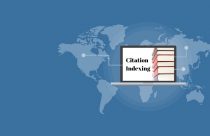Does Journal Indexing and DRJI Scores Affect Your Research Career?

It is an achievement to publish scientific journal articles in indexed journals. It ensures that all subscribers to that journal will read and cite your article. With so many journals available, the subscriber base of a particular journal may not be very high. Some researchers may want to find out about the topic of your article later or they may not currently have subscriptions to indexed journals. So how does one find your article?
The answer is simple: journal indexing and indexation services.
What are Journal Indexing and Indexation Services?
Journal indexing is the process of listing the titles, authors, and abstracts of articles published in indexed journals. You will be familiar with many of the top medical journal indexes. These include PubMed index, Google Scholar, Thomson Reuters’ Biological Abstracts, and Index Medicus.
The Directory of Research Journal Indexing (DRJI) is a free online journal indexing service. It provides easy open access to scientific literature and scholarly journals, which promotes the journal’s increased usage and impact. It also helps in increasing the visibility of articles on the web.
How do Journal Indexes Work?
Journal indexes collect citations so that researchers can locate articles relevant to their interests. In fact, researchers can search through a large database of citation information. Journal indexes usually automate the process by using computer algorithms. These algorithms can determine data like the language of the article, the keywords, and the full text of the article. In addition, researchers interested in your research topic can then easily locate your article as they do not have to subscribe to every relevant journal.
What You Need to Know about DRJI Scores
Scholars and journal publishers of open access science journals debate the question of whether indexing and abstracting services are important to the prestige of the journal. Indexing can increase the number of citations of a journal article. More citations can increase the impact factor and the score in Thomson Reuters Journal Citation Reports (JCR). The reputation of a journal is established in the JCR.
So we know citations are important but are indexing services really important? The advent of journal quality reporting methods like the Directory of Research Journal Indexing (DRJI) is making journal indexing more important.
Many authors who want to publish in high-prestige journals look to statistics like the DRJI to determine how respected journals are. Some journals may publish plagiarized content or questionable scientific journal articles. They sometimes charge the authors a fee for publication. Not only is it not helpful to your career to publish in these “bad science” journals, it can actually look bad on your CV.
Calculating DRJI Scores
DRJI provides a list of evaluation points that it uses to calculate a journal’s score out of 1,000. There are 20 points on the list—here are a few examples:
- Articles published regularly (monthly, quarterly, etc.) – 100 points
- Journal website design – 100 points
- Percentage of article plagiarism detection – 50 points
- Presence in social media networks – 50 points
- Journal’s presence in various indexing services – 50 points
Are you are surprised that journal indexing is only worth 50 points out of 1,000 for the DRJI score? Maybe a journal’s website design is less important than indexing and plagiarism. Maybe the points system should be different. Unfortunately, there is no agreed-upon way of determining the objective quality of a scientific or medical journal. Therefore, researchers and journal publishers have to approach the DRJI and similar services with critical thinking.
The Bottom Line: Indexing Matters
Researchers would like to believe that peers judge the quality of research articles on its own merits rather than on the reputation of the journals where it is published. However, this is not the case. Although they have some shortcomings, the DRJI and other scoring services are serious. Therefore, we should take them seriously when we choose where to publish.
Publishing in indexed journals is not a sure way to enhance your career and generate citations. However, it is an important consideration when you decide where to submit your manuscript. Indexing is only one part of what makes a journal prestigious. But publishing indexed journals can help fellow researchers locate and engage with your work. Therefore, we recommend that you always try to publish in journals indexed in the top databases.
What is your opinion of the DRJI and other journal rankings? Do you think journal citation reports and indexed journals are important to your career? Comment to let us know your thoughts!
References
- Ian Kennedy, response to Sudhakar Pemminati, “What is indexed journal means? is it PUBMED indexed?” ResearchGate, July 25, 2016, https://www.researchgate.net/post/What_is_indexed_journal_means_is_it_PUBMED_indexed
- Yatan Pal Singh Balhara, “Indexed journal: What does it mean?” Lung India, 2012;29(2):193.









